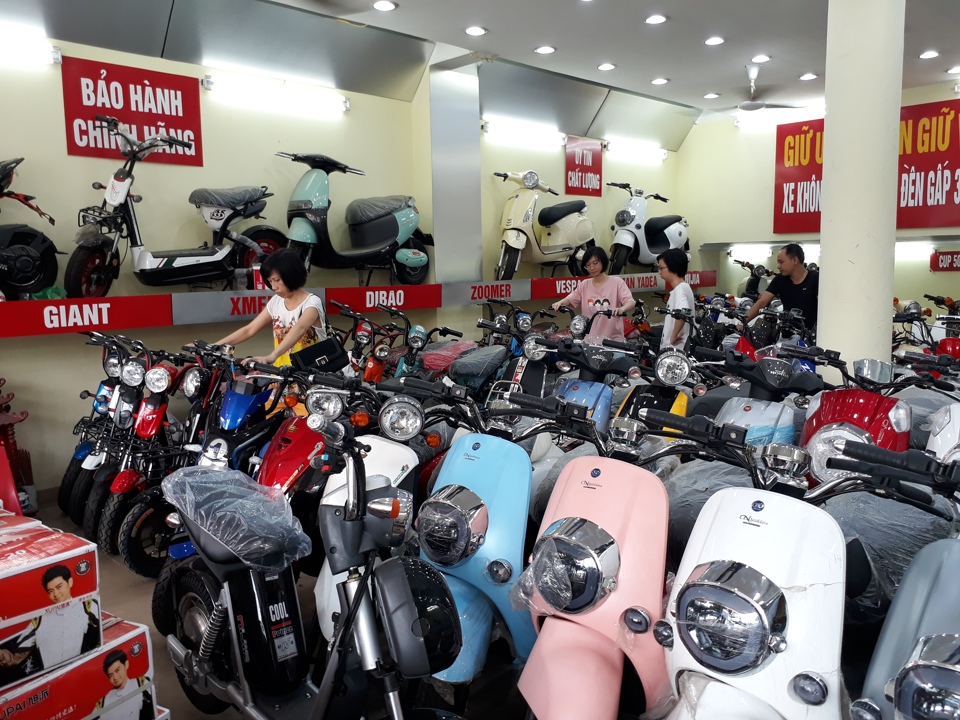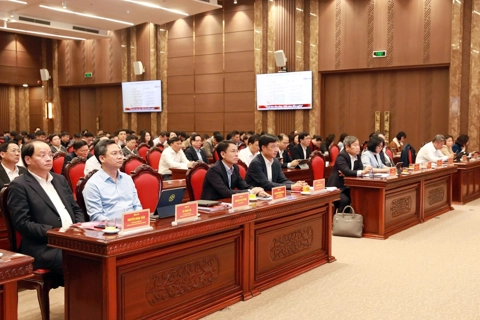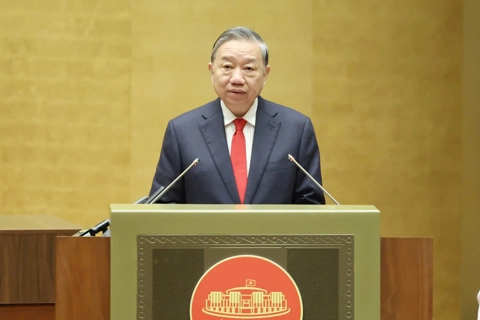Vietnam’s push for electric vehicles to combat pollution
Prioritizing electric vehicle adoption helps reduce emissions, improve air quality, cut fuel costs, lower noise pollution, and enhance energy efficiency.
THE HANOI TIMES — Every morning, Linh Pham's family plugs in their electric motorcycle, tucked neatly beside their home in Ha Dong District. “It’s so convenient,” she says, her voice a mix of pride and practicality. “No need for gas stations anymore, and the best part is that I’m helping protect the environment.”
Linh’s decision to switch to an electric vehicle (EV) wasn’t just about convenience. It was about reducing pollution in Hanoi’s air, which has long been a serious concern for residents. As large cities like Hanoi and Ho Chi Minh City grapple with worsening air quality, EVs are emerging as a solution to reduce harmful emissions and improve urban life.
The shift to electric vehicles, particularly electric motorcycles, is gaining momentum. The World Bank’s November 2024 report, The Breakthrough Journey: Transition to Electric Vehicles in Vietnam, highlights the environmental benefits of EVs, noting that they help cut down CO₂ emissions and limit harmful PM2.5 particulate matter, a major culprit behind respiratory diseases in cities. In fact, the transition to electric vehicles could reduce CO₂ emissions by up to 170 million tons by 2050, according to the report.

Consumers buy electric vehicles on Xa Dan Street in Hanoi. Photo: Hai Linh/The Hanoi Times.
A greener choice for many families
For Linh Pham, it wasn’t just about cutting down emissions, but it was about value. “The performance is just as good as a gasoline motorbike. In fact, we liked it so much that we bought another one for our daughter,” she shares. Just like Linh, Hoang Nam, a resident of Long Bien, opted for an electric motorcycle over a gasoline-powered car. He found it to be more cost-effective and easier to maintain, which makes it a practical choice in a fast-moving city like Hanoi.
The use of electric vehicles also contributes to national economic growth by reducing the amount of foreign exchange spent on fuel imports. The World Bank estimates that successful electrification of transportation could save Vietnam up to US$498 billion in fuel imports by 2050.
In addition, the EV industry has the potential to create numerous job opportunities. The World Bank report indicates that the transition to EVs could create an additional 6.5 million jobs, primarily in vehicle manufacturing, battery production, and charging infrastructure. Approximately 61% of these new jobs will be directly related to the development of charging networks.
Vietnam's path to electrification
The National Traffic Safety Committee reported that Vietnam has approximately 77 million gasoline-powered motorcycles in circulation, making them the primary mode of transportation and a major contributor to transport-related emissions.
The World Bank report outlines Vietnam's goals: 50% of urban transport will be electric by 2030, including all inner-city buses and taxis, with a full transition to green energy by 2050. This could reduce CO₂ emissions by 170 million tons under an accelerated development scenario.
To achieve its goals, Vietnam will need to invest heavily in charging infrastructure, expand the power grid, and develop energy storage technology, according to the World Bank. The country needs to mobilize $9 billion by 2030 and $14 billion annually from 2031 to 2050 to meet the growing demand for electric vehicle charging.
The report urges the government to accelerate the transition by establishing an inter-ministerial agency to oversee and coordinate EV policy. It also recommends tax incentives and financial support to encourage individuals and businesses to adopt electric vehicles. Expanding a nationwide charging network, especially in major cities, bus stations, and along key transportation routes, remains a priority.
The World Bank asserts that with a strategic approach and effective policies, Vietnam can establish itself as a leading EV manufacturing hub in the region.
Challenges ahead
Despite some initial progress, the transition to electric vehicles faces several challenges.
Transport expert Nguyen Manh Thang said that the current penetration of electric motorcycles is still low. He suggested that to expand their use and gradually replace gasoline motorcycles, electric vehicles need greater capacity, more widespread charging stations, and an increased number of small repair shops.
In the aforementioned report, World Bank senior energy expert Chiara Rogate highlighted the need for ambitious targets. To achieve net-zero emissions by 2050, she called for electric vehicles to account for 50% of inner-city vehicles by 2030 and 100% nationwide within the next 25 years.
She also emphasized that Vietnam should prioritize the development of electric motorcycles as a practical and immediate solution to reduce emissions. However, while switching to electric motorcycles will help reduce emissions, she noted that it will not fully address traffic congestion.
Transport expert Le Trung Hieu pointed out that Hanoi, with nearly 10 million residents and about 7 million motorcycles, is already struggling with an overburdened urban infrastructure. He urged the city to prioritize measures to reduce the number of private vehicles.
"Limiting the number of private vehicles remains the key strategy for reducing congestion and pollution," said Hieu.












